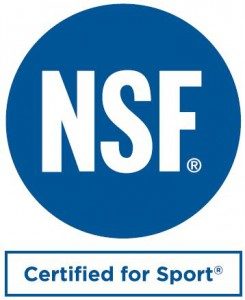Needs and safety
A lot of athletes use supplements however they’re not always aware of the exact effects those supplements have and if they really need them in the first place. The term supplement doesn’t have a singular definition. The IOC defined it in its consensus statement as:
“A food, food component, nutrient, or non-food compound that is purposefully ingested in addition to the habitually consumed diet with the aim of achieving specific health and/or performance benefit.”
While some supplements definitely have health and performance benefits, a lot of claims about supplements are not backed by science and therefore might not have any effect at all. Using supplements is never without any danger. Supplements are not regulated like medicine. Unlike with medicines, there is no need for quality assurance of content, no need to show safety when taken acutely or chronically and there are no clear rules regarding labeling. Besides the fact that supplements may be harmful to health, they may contain ingredients that violate the anti-doping code. Even if the prohibited substance is not listed as an ingredient, the supplement might be contaminated with such a substance and lead to a positive urine sample. Since athletes are always responsible for what enters their body they might be sanctioned accordingly.
While considering taking a certain supplement it’s always important to evaluate the effects, the effectiveness, the need and safety of the supplement. The possible benefits should outweigh the risks.
Effects of a supplement:
If you don’t know exactly what a supplement is supposed to do, you can’t evaluate if it’s really working. As an athlete it’s difficult to keep up with all the supplements on the market, fortunately, you can always ask a sports dietitian or someone else of your support team. Always check if the claims of a supplement are backed up by science or if it’s just an idea, anecdote or opinion somebody had.
Need for a supplement:
Even if a supplement is found effective by science it doesn’t necessarily mean that every athlete needs it nor that it will be effective for every athlete in every situation. A lot depends on health status, type of sport, level of sports participation, goal, age, etc. If you think a supplement might be beneficial for you, try it out in a training environment and evaluate it before using it during competition.
Safety of a supplement:
It is highly recommended to only use supplements of known and reputable brands. There are third-party organizations that supervise the production process and test supplements on safety and prohibited substances. Supplements certified by such organizations can be considered to be “low risk”. However “low risk” is not equal to “no risk”.
Examples of these third-party organizations:
Based on the latest consensus statement of the IOC regarding supplements.





